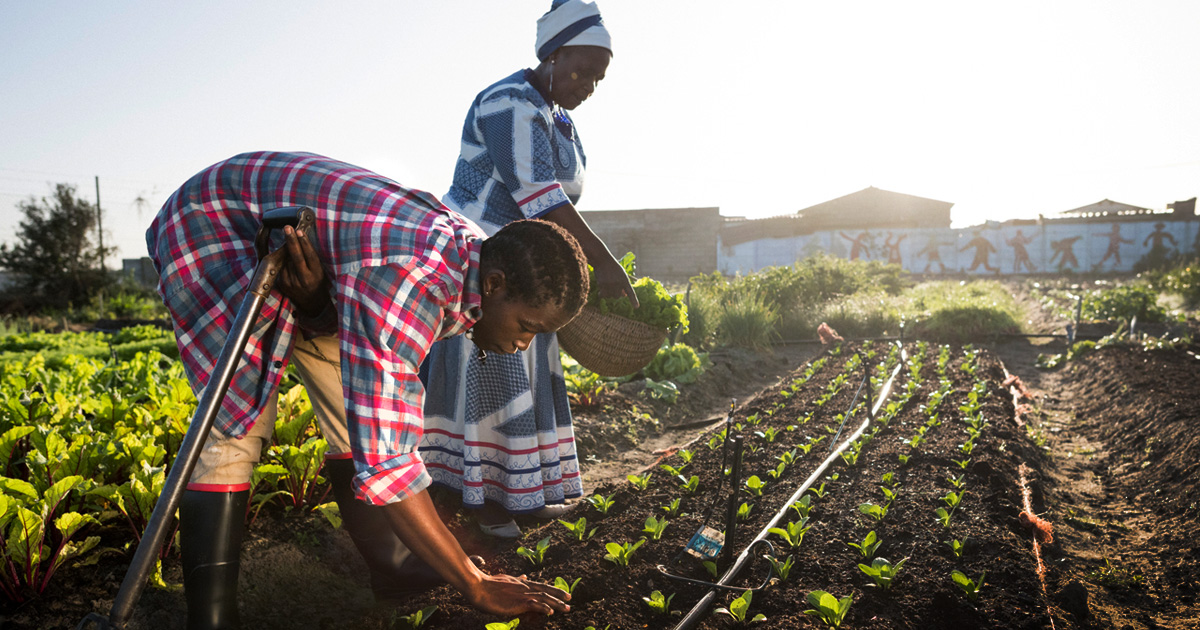Climate Change
Evidence improves the impact of climate policies and programs.
Connect with an ExpertEvidence improves the impact of climate policies and programs.
Connect with an ExpertAt Mathematica, we’re committed to just that. Our researchers, evaluators, data and social scientists, and subject matter experts collaborate across sectors to uncover evidence and insights to address the challenge of climate change. We use diverse data sources that include satellites, remote sensors, and household surveys. Our innovative analytical tools combined with our policy analysis and evaluation expertise help partners measure progress and enhance the impact of their climate adaptation policies and programs. Our work today catalyzes momentum for climate resilience to prevent the need for more complicated and costly solutions in the future.
Learn more about how we can partner to maximize the impact of climate solutions with evidence.
As the go-to partner for climate MEL, we help clients understand the effects of climate change and explore solutions across a range of sectors, including agriculture, health, energy, water, sanitation and hygiene, education and workforce, livelihoods and economic stability, and nutrition. Here’s a look at our work in a few key sectors.
The agriculture sector is a main contributor to climate emissions globally. However, agriculture is also an essential source of economic stability that supports rural livelihoods threatened by climate change. We apply extensive knowledge of agricultural systems challenges to determine which interventions are effective and sustainable internationally. Through our agriculture evaluations, we generate insights into the benefits of improved and sustainable farming practices, water management, and post-harvest technologies for smallholder farmers. Projects include supporting AGRA in implementing its MEL strategy and developing USAID’s GHG emissions calculator for agriculture, forestry, and land use (AFOLU) projects.
Historically marginalized communities are disproportionately (1) exposed to climate-related natural disasters and (2) susceptible to their health effects. Using advanced analytics and dynamic visualizations, we underscore the complex relationships between exposure, sensitivity, and capacity—and identify who is most vulnerable to climate-related health issues. In so doing, we generate understanding of the conditions that should trigger emergency warnings to protect vulnerable residents and help communities and health systems bolster their climate resilience. Our work in this area includes the Catalyzing State Medicaid Leadership on Climate Change Mitigation project and ClimaWATCH.
Access to modern energy services is necessary to enhance economic opportunity and stability, improve living standards, and increase national and regional resilience to climate change. We provide data collection and data analytics solutions that help our clients understand energy usage, inform policymaking, and analyze the efficacy of green energy investments. Projects include the Caribbean Clean Energy Financial Landscape Assessment and our work with the Millennium Challenge Corporation to understand how its investments could lead to more reliable, higher-quality electricity in Benin, Ghana, and Liberia, in addition to previous work in Tanzania.
As part of a new Climate Change and Health Analytics initiative, we have developed a tool for exploring the impact of heat waves on health and equity at the national, state, and local levels. Watch this four-minute overview video and learn more about the tool.
Learn More
Mathematica will begin its work to support AGRA in implementing its monitoring, evaluation, and learning strategy that the two organizations previously co-developed.
Learn More